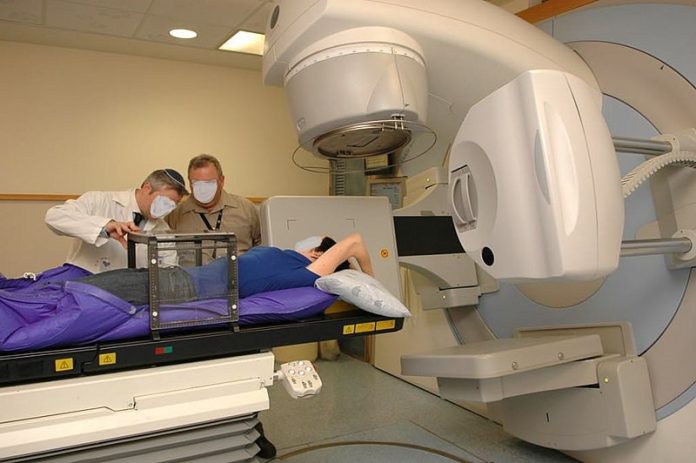The term oncologist refers to a doctor who specializes in diagnosing and treating cancer patients. An oncologist will design a treatment plan based on your reports, which will tell you what type of cancer you have (type of cancer), how much it has grown (stage of cancer), how quickly it will spread (grade of cancer), and where it is located in your body (local organ where it started or parts it has spread to). When you are being treated for cancer in Hospitals for Cancer Treatment, you will probably see a variety of different kinds of oncologists in the course of the process. There are many hospitals for cancer treatment in Bangalore where you can find the right oncologist for your cancer type.
Let us understand more about oncologists and the types of oncologists.
There are three main types of oncologists:
- Surgical oncologist,
- Medical oncologist
- Radiation oncologist
Surgical Oncologist
When your doctor suspects that you may have cancer, he or she will likely refer you to a surgical oncologist first.
In the case of cancer, your surgical oncologist will first perform some tests to confirm cancer. He will remove some sample of the tumor and send it to a lab for a biopsy. A biopsy is a test where cells from the tumor are studied under a microscope to confirm if the cells are cancerous or not.
If your biopsy is positive i.e. your tumor contains cancer cells, surgical oncologist may operate to remove the tumor and its surrounding tissue. You will be helped by the surgeon to prepare for and recover from any surgical procedures you may undergo during cancer treatment. Whether you need surgery or not will be decided mainly by the type of cancer you have and the stage of your cancer. Usually early stage solid organ cancers are operable. In late stage cases, surgery as a main treatment is less likely to succeed.
There are various hospitals for cancer treatment where Bangalore’s best surgical oncologists are available.
Medical Oncologist
Chemotherapy, hormonal therapies, biological therapies, and other targeted treatments are used by medical oncologists to treat cancer. Many people consider a medical oncologist to be their primary cancer doctor.
In addition to monitoring patients’ health, medical oncologists help them deal with side effects. In most cases, patients follow up with their medical oncologists after treatment is complete.
Radiation Oncologist
Cancer cells are targeted and destroyed by radiation oncologists using high intensity rays such as x-rays.
Nearly half of all cancer patients receive radiation therapy as their treatment along with other cancer treatments. Although, radiation therapy in itself is never the first line of treatment or the only treatment.
A Radiation Oncologist will prepare a detailed plan to treat your cancer using radiation therapy. This type of specialist is trained in using large powerful machines called Radiation Therapy machines. The radiation oncologist will decide what type of radiation technique will be most effective for your cancer, the dose of radiation to be given, the duration of radiation treatment and safety protocols to minimize harmful effects of radiation during treatment.
Cancer patients’ treatment play may include more than one type of treatment, such surgery or cancer medications, or radiation therapy. This means different types of oncologists and other doctors might be involved in creating an overall plan. For best outcomes in most cancer cases, a team of oncologists works together to treat a patient. This is called a multi-disciplinary team approach and is recommended globally as a best practice to treat cancer properly. (Provigil)
Now that you have learned about the different types of oncologists, let us learn more about how to choose the best oncologist for your case.
What Should You Look for in a Cancer Specialist?
- Experience: You should find a specialist who has a lot of experience treating the type of cancer you have. Your doctor should be able to tell you how many cases they have treated over the past year and in their career.
How many is enough? There’s no easy answer. Nevertheless, you should feel confident that your doctor treats patients like you regularly.
- Good Training: Where did your doctor train? For how many years has he or she trained in that specific field? Ask if they have other special qualifications or areas of interest.
- Board-certified: Oncologists with board certification are specifically trained in a particular branch of medicine and must pass an exam to prove their understanding and expertise. So if your doctor is board-certified- in medical oncology or surgery, for instance — you can be confident that they are highly qualified in that field.
- Openness to your questions: This is one of the most important things to look for in a cancer specialist. It is important for you to feel like your doctor is listening to you and answering your questions. Make sure your doctor is available to you even after you leave their office if you need to talk to them.
How to choose an oncologist
Choosing an oncologist even from a few names can sometimes feel overwhelming. You might feel like you do not know how to choose between the different options during this stressful time.
The first thing you will need to do is collect the important information about each doctor. You can look up top oncologists online and check for patient reviews and ratings. While this may still not be conclusive enough, you can speak to the cancer counselors to understand the credentials, experience and suitability of oncologists for your cancer type and stage. The counselors have access to well researched databases through which they are able to match each patient to the most qualified oncologist for their case.










